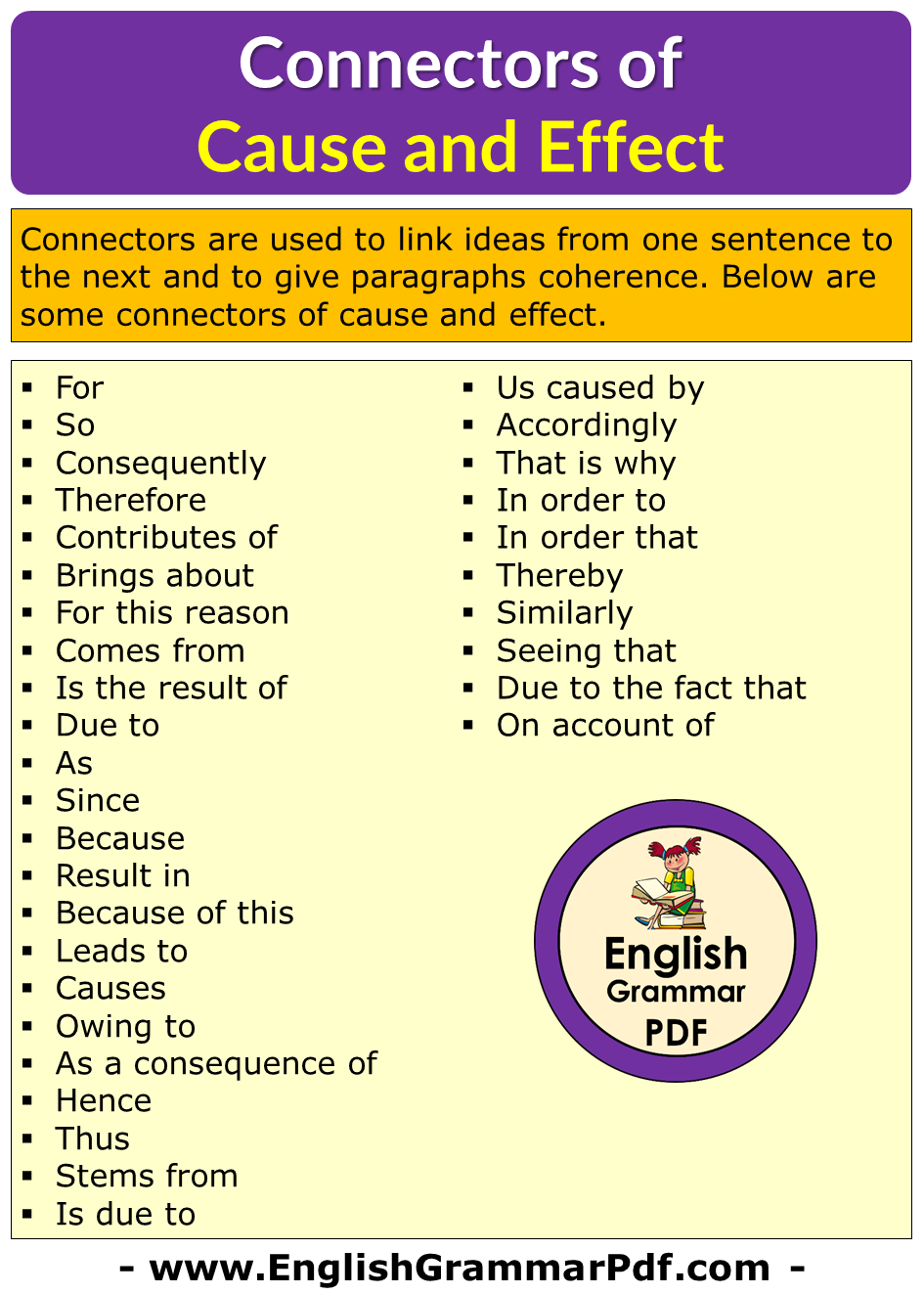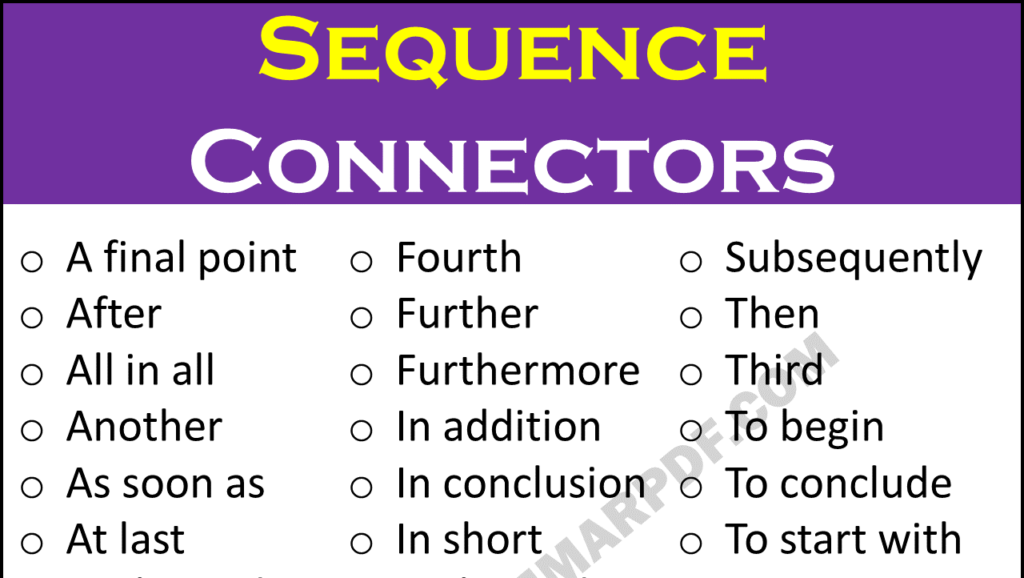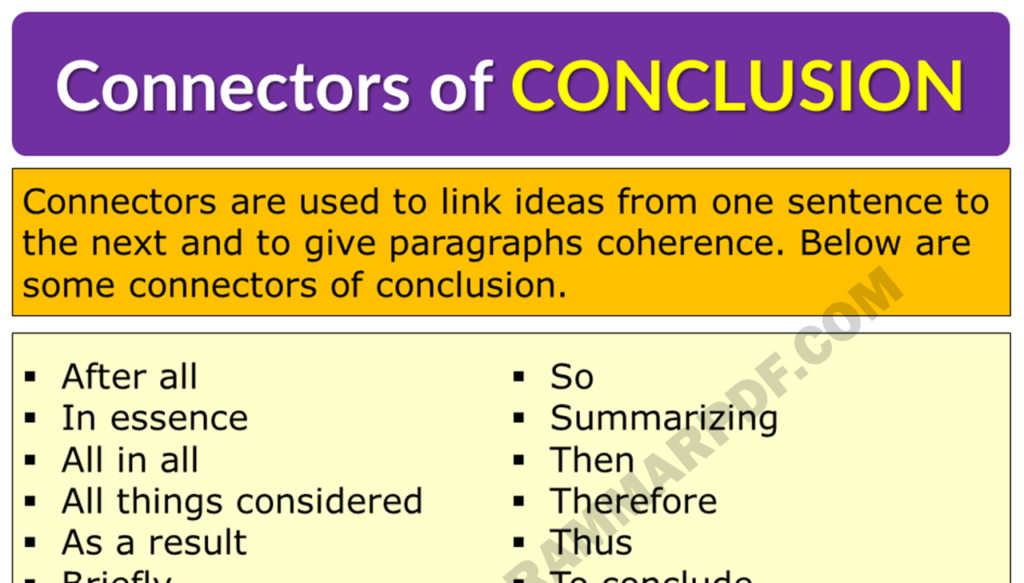Unlock the power of effective communication with our essential guide to cause-and-effect connectors! This resource offers a detailed exploration of key phrases that link actions and their outcomes, enhanced by practical examples. Elevate your writing and speaking skills by understanding these vital linguistic tools. Plus, don’t miss out on our handy downloadable PDF for quick reference!
Also Read: Connectors and Example Sentences
What are Connectors of Cause & Effect?
Connectors of cause and effect are words or phrases used to link an event or action (the cause) to its outcome or result (the effect). They are crucial in constructing clear and logical sentences that explain why something happens or the consequences of certain actions. Examples include “because,” “therefore,” and “as a result.”
Connectors of Cause & Effect List with Examples
1:- Because: Shows the reason for something.
Example: She took an umbrella because it was raining.
2:- Therefore: Indicates a conclusion or result.
Example: He was late, therefore he missed the train.
3:- As a result: Points to the outcome of an action.
Example: The road was icy, and as a result, driving conditions were dangerous.
4:- Due to: Indicates something that is caused by something else.
Example: Due to heavy snow, the schools were closed.
5:- Consequently: Shows that one thing is the result of another.
Example: The game was canceled, consequently, fans were disappointed.
6:- Thus: Similar to ‘therefore’, often used in formal writing.
Example: He failed to submit his report on time, thus he received a low grade.
7:- Since: Indicates a cause or reason.
Example: Since it was raining, the match was postponed.
8:- So that: Indicates a purpose or an intended result.
Example: She studied hard so that she could pass her exams.
9:- Hence: Similar to ‘therefore’, often used in formal contexts.
Example: The company was losing money, hence it closed down.
10:- Because of: Refers to the reason for something.
Example: Because of the traffic jam, I arrived late.
11:- On account of: Similar to ‘because of’.
Example: On account of the storm, the event was canceled.
12:- Owing to: Indicates a cause or reason.
Example: Owing to her experience, she was offered the job.
13:- In view of: Refers to a reason or cause.
Example: In view of the current market trends, we need to change our strategy.
14:- For this reason: Highlights a specific cause or motive.
Example: For this reason, we have updated our return policy.
15:- As: Indicates a cause.
Example: As the CEO was absent, the meeting was rescheduled.
16:- By reason of: Formal way to indicate a cause.
Example: By reason of his expertise, he was chosen for the project.
17:- Seeing that: Similar to ‘since’, indicating a reason.
Example: Seeing that everyone agrees, we should proceed with the plan.
18:- Inasmuch as: Formal phrase indicating a cause or reason.
Example: Inasmuch as the data is incomplete, we need to do more research.
19:- In consequence of: Indicates a result due to a specific cause.
Example: In a consequence of the budget cuts, some projects were halted.
20:- Given that: Indicates a reason or premise.
Example: Given that we have limited time, we must prioritize our tasks.
Related:

Download this Lesson in PDF


